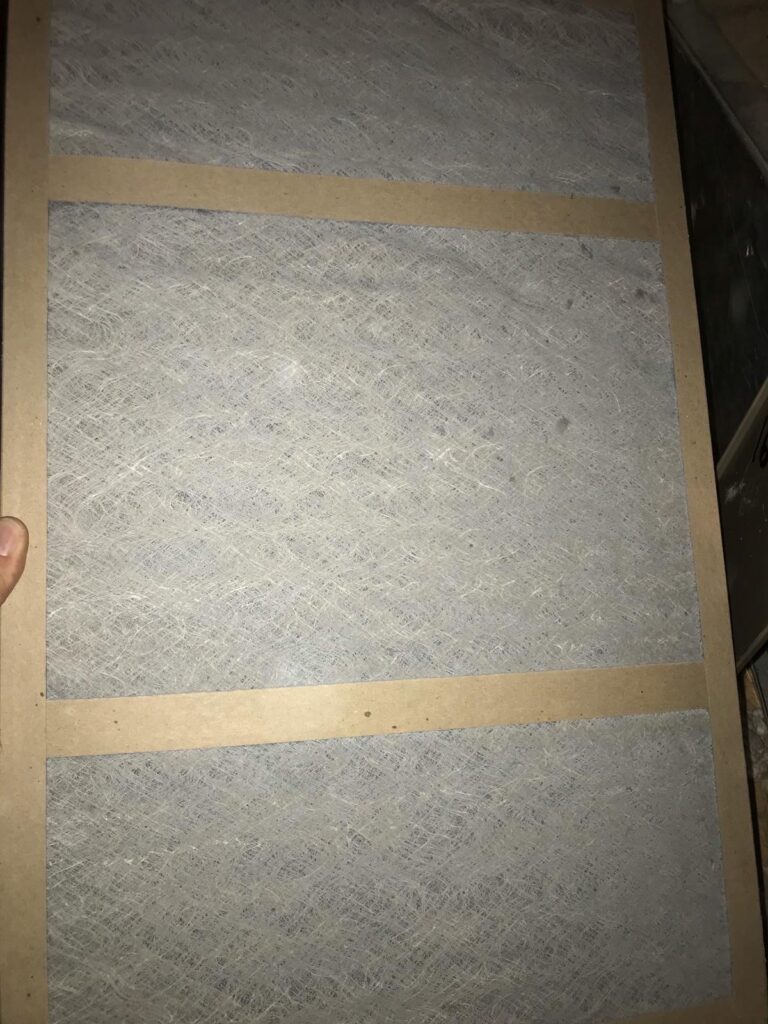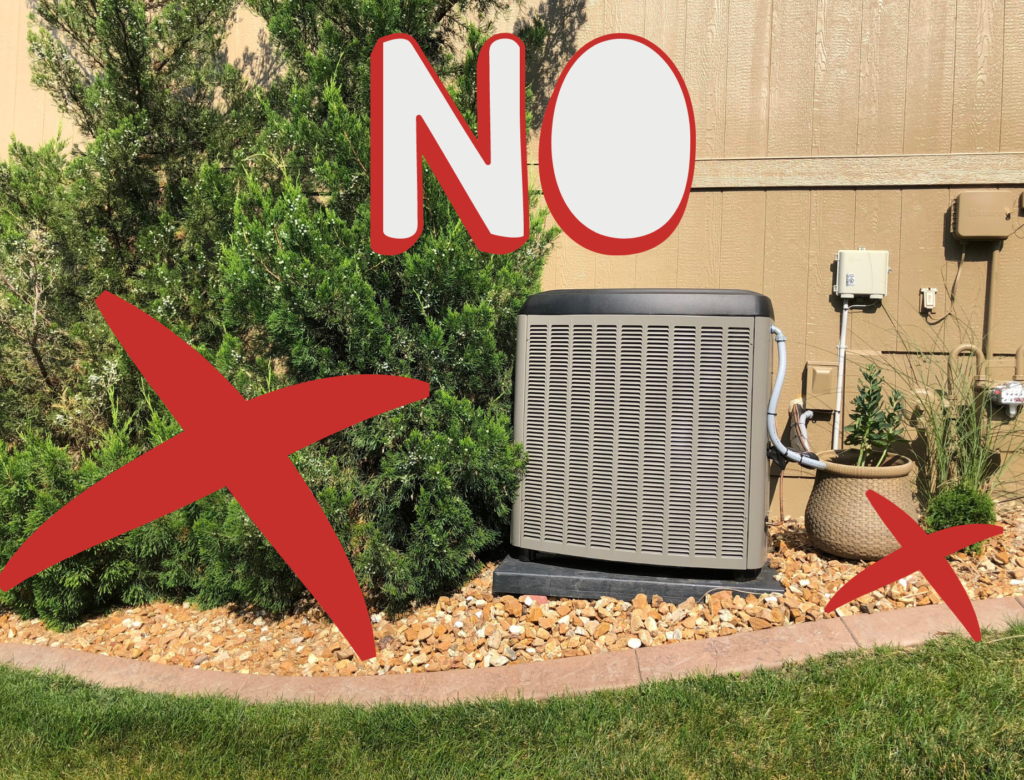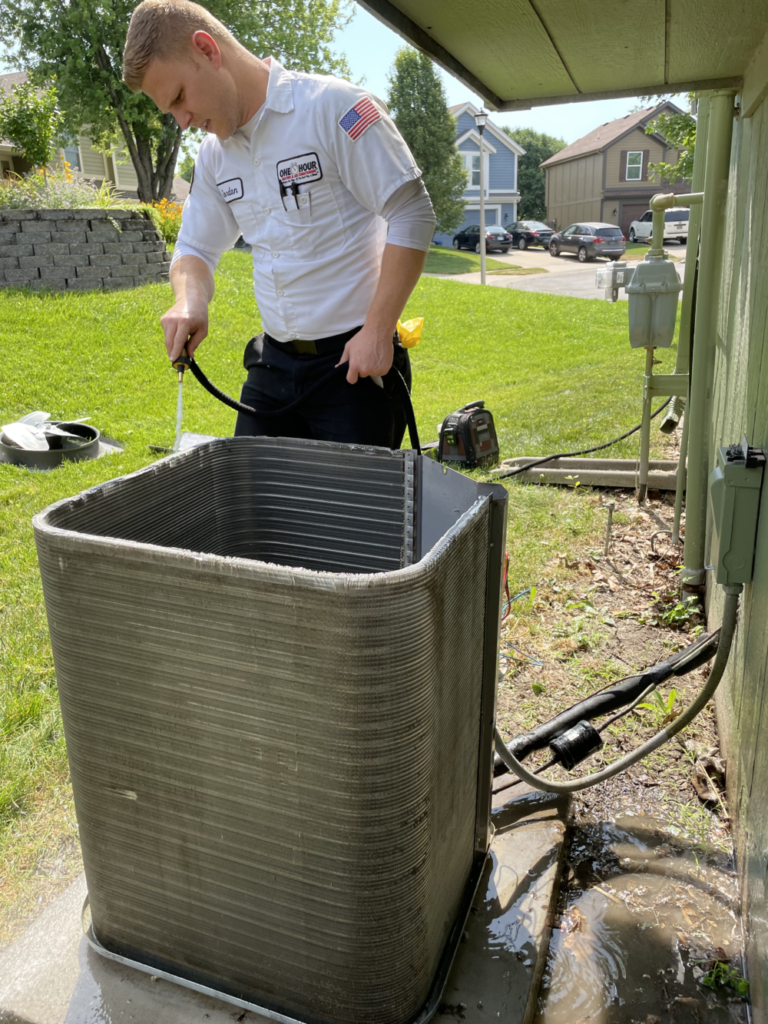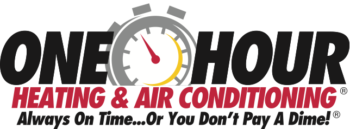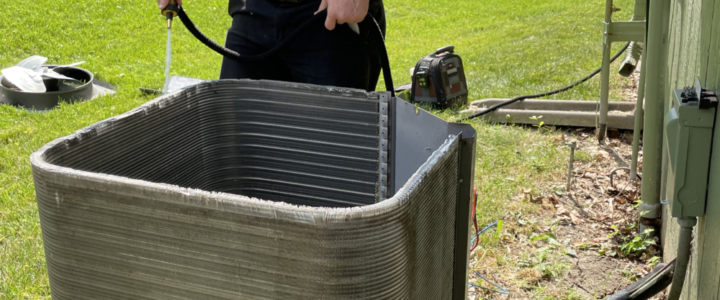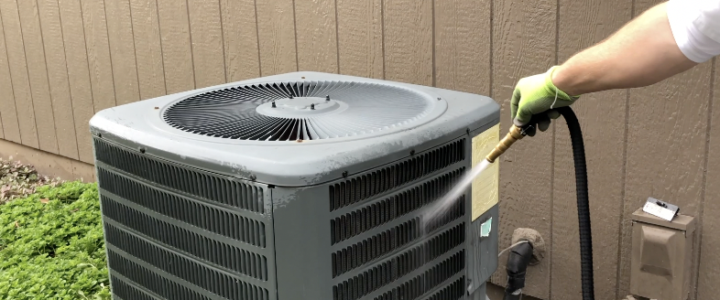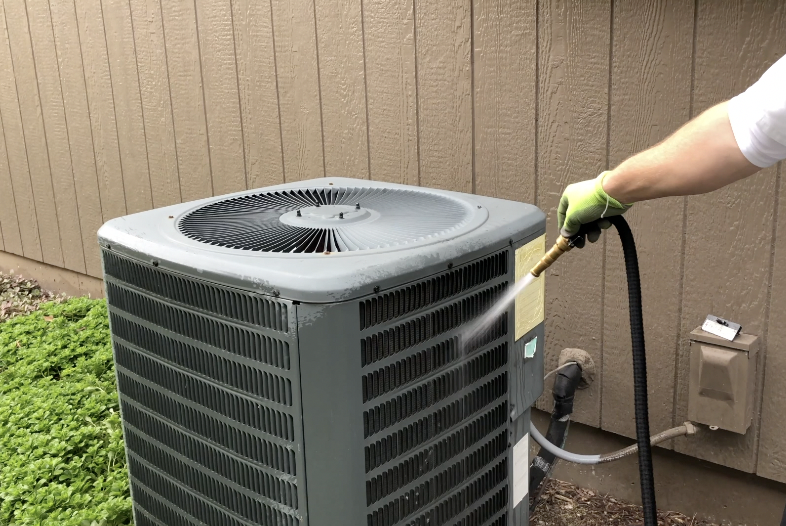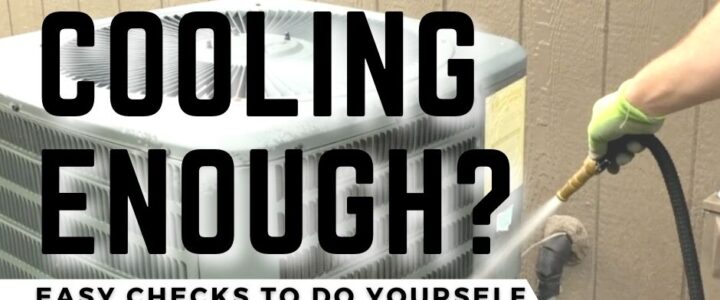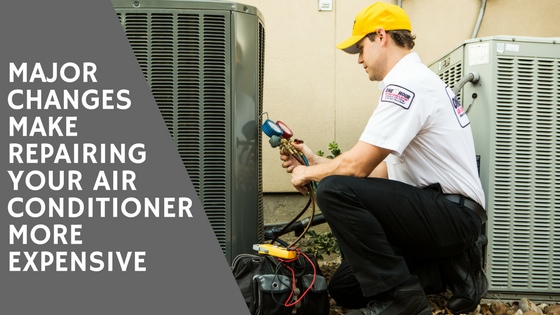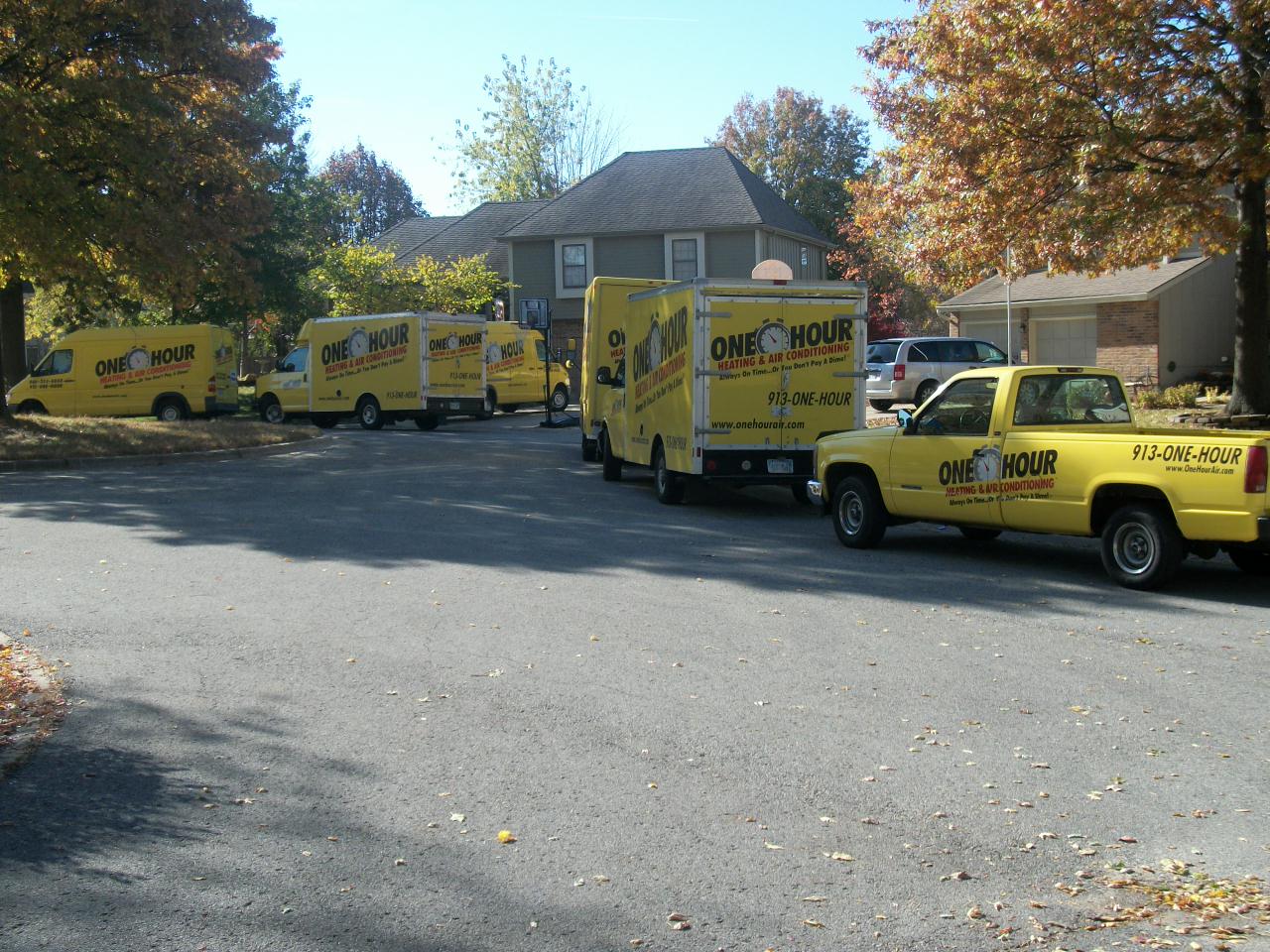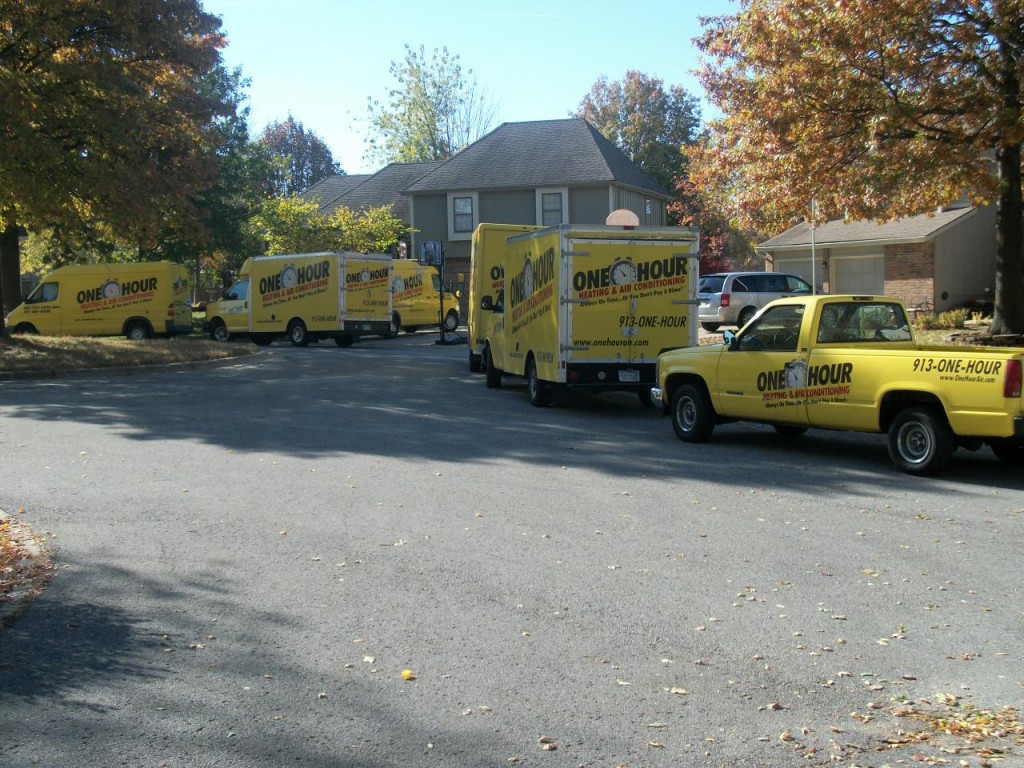If your air conditioner is cooling, but not cooling very well or not cooling enough, you want to check a few simple things before calling anyone to fix your air conditioner.
If your air conditioner is not cooling enough, the first thing to check is your air filter.
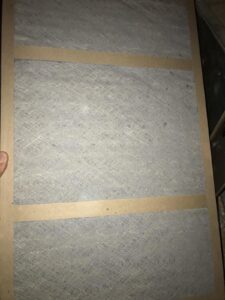 A dirty air filter can restrict air flow and prevent your air conditioner from cooling enough. The furnace air filter is very easy to change yourself and could be your main problem!
A dirty air filter can restrict air flow and prevent your air conditioner from cooling enough. The furnace air filter is very easy to change yourself and could be your main problem!
If you see a mat of dust and dirt over the surface of the filter, it is likely causing a problem due to poor airflow.
However…
Even if the filter is a little bit dirty, a safe bet is to just replace it. Typically you change your filter every three months, but depending on the time of year and how much your HVAC system is running, if it looks dirty, go ahead and change it.
The type of filter matters.
Home stores sell filters that can be extremely restrictive to air flow. A “high efficiency” filter with some dust and dirt can almost turn into the equivalent of a piece of cardboard. A restricted air filter can cut down the air flow to the air conditioner to the point where it affects how well it can cool.
We suggest a mid range MERV rating around 6 or 7.
Your air conditioner may not be cooling enough because of trees or bushes blocking the airflow from the outdoor unit.
The next thing to check is the outdoor ac unit. The outdoor unit is called a condensing coil.
You may find bushes or trees that have overgrown and now they are blocking the airflow out of the top of the unit. So, make sure everything is trimmed back at least a couple of feet all the way around the air conditioner. Hot air needs to be ejected off the top of the unit. If you have tree limbs or bushes hanging down over the unit, that causes the hot air to recycle back through the air conditioner. So we want everything cleared away from the top and sides of the unit. Keep everything 6-8 feet away from the unit to allow the discharge of heat and allow a free flow of air.
Is the outdoor coil clogged with dirt and debris?
Another check: is there dirt on the condenser coil? Make sure it is not dirty with dust, dirt, or debris from nearby trees and bushes. How you check the outdoor coil depends on what kind of cabinet you’re looking at. Some outdoor units have little horizontal louvers you can look through to know if there’s dirt on the coil. (Other units are vertical and some don’t have any louvers at all where the coil itself is completely exposed.) Look down and up into the condensing unit. You should see the surface of an aluminum coil. It has little fins.
Dust, dirt, or cottonwood seeds can get inside and completely impact that coil. This cuts down the airflow and that is probably the number one reason why your air conditioner is not cooling enough.
If the outdoor coil is clogged with dirt and debris, the air conditioner will not cool enough. If your outdoor condensing coil is clogged, you can try to clean it yourself. A professional coil cleaning will clean from the inside out. If you wish to clean the outdoor unit yourself, make sure to only use a light stream of water. Too much pressure can damage the coils. A nice, light stream of water at an angle can help remove some of that dirt and debris.
(It is possible to wash out an air conditioner in a way that damages some of the components. Therefore we always recommend a professional perform a through cleaning.)
Watch a professional cleaning here.
Check Air Flow
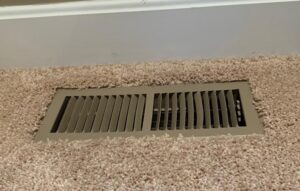 We also encourage homeowners to walk around the living space and check air flow. Put your hand over a vent and see if the airflow feels normal or not. If there is barely any air coming out of some vents, but lots of air pouring out of others, that may mean you need to adjust dampers.
We also encourage homeowners to walk around the living space and check air flow. Put your hand over a vent and see if the airflow feels normal or not. If there is barely any air coming out of some vents, but lots of air pouring out of others, that may mean you need to adjust dampers.
Adjust Dampers for Summer
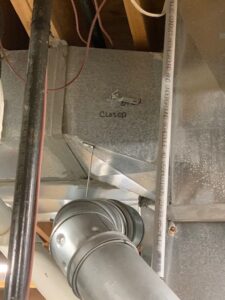 Typically dampers can be adjusted manually.
Typically dampers can be adjusted manually.
If your dampers are not adjusted properly for the season, you may be moving the conditioned air to parts of the home where it is not needed, leaving other areas uncomfortable. This is very common in two story homes.
Watch this video about changing dampers.
Where are the dampers?
The dampers are generally located in the basement or near your furnace. If you’re looking at the furnace, straight above it is what we call a plenum. It’s the big metal box that comes off the top of the furnace. The plenum separates out throughout your home.
Right where it starts to branch out is usually where you will find some manual dampers.
There’s usually a handle to grab a hold of to rotate the damper. The direction of the metal handle is the direction of the damper. If it’s parallel to the duct it’s wide open and it’s letting all the air through. If the handle is straight up and down and it’s perpendicular to the ductwork, it’s completely shut off. You are not allowing air to that part of the home.
Is your air conditioner leaking water?
If you see any water or condensation on top of the furnace, that is a problem. If you see water on the unit or on the floor around the furnace where there shouldn’t be water, it can usually mean one of two things.
1. One possibility is the drain is plugged up. Your air conditioning system is trying to remove heat and humidity out of the house. The condensation is designed to go down to the floor drain. If something gets clogged up it starts overflowing and there will be a large volume of water where it does not belong.
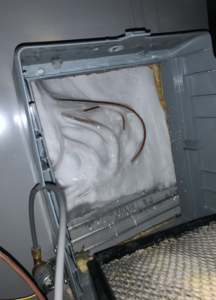 2. Your coil could have ice on it. The coil is a big box that sits above your furnace. Ice can block the airflow and cause the air conditioner to function poorly.
2. Your coil could have ice on it. The coil is a big box that sits above your furnace. Ice can block the airflow and cause the air conditioner to function poorly.
The coil can actually become a huge block of ice. When it thaws it will drip water all over the place so it ends up on top of the furnace or on the floor. A dirty filter can cause that. This is most likely an indication that you need maintenance on your system. Dirty filters or an improper refrigerant charge can cause the unit to not cool well.
If your coil is frozen, turn it off. The ice needs to be completely thawed before you can turn on your air conditioner again.
What is the best way to prevent air conditioner repairs?
Ultimately the best way to reduce the likelihood of having an air conditioner problem (and paying for a costly repair), is to have regular maintenance and cleaning. We recommend a professional cleaning twice a year to keep your HVAC system running efficiently for many years to come!
One Hour Heating and Air Conditioning in Olathe, KS specializes in air conditioner repair in all of Johnson County, KS.
